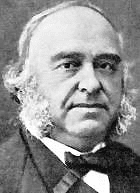 June 26
1992:
Corsica’s parliament adopts a motion giving official status to the
local language. This decision is not approved by the French government.
June 26
1992:
Corsica’s parliament adopts a motion giving official status to the
local language. This decision is not approved by the French government._______________________
Linguistic Naming Practices
The biggest object ever named for a language is most probably a continent—Latin America (or rather a continent and a half, since it includes not only South, but also Central America). Indeed, it is not unlikely that Latin is also the language for which the largest number of objects has been named. That certainly does not mean that it does not have its competitors. One of the more striking is Esperanto.
Röllinger (1997), updated by Kaminski & Bore (2002) lists more than 1 200 objects of various kinds in 59 countries named either after Esperanto, or its creator Ludwig Zamenhof. The list includes about 700 streets, 140 monuments, 50 buildings, 27 bus stops, 22 parks, 16 restaurants, 14 schools, 10 hospitals, 5 fountains, 6 hotels, 4 ships, 3 libraries, 2 islands, 2 shopping malls and 2 camping grounds, a brook, a mountain and a town (Esperantopolis, in Brazil).
A tulip was named Esperanto in 1968, and it was later joined by a similarly named clematis. A species of lichen is known as Zamenhofia, while a beetle has been baptized Gergithus esperanto. The Berhardt Progressive Furniture Collection of New Zealand markets a chair named Esperanto.
Esperanto has even made its presence known in outer space—in the late 1930s, Finnish astronomer Yrjö Väisälä named two asteroids Esperanto and Zamenhof. The language itself soon followed, as the spacecraft Voyager 1 and Voyager 2 included disks with Esperanto recordings, for the benefit of any interested aliens.


























